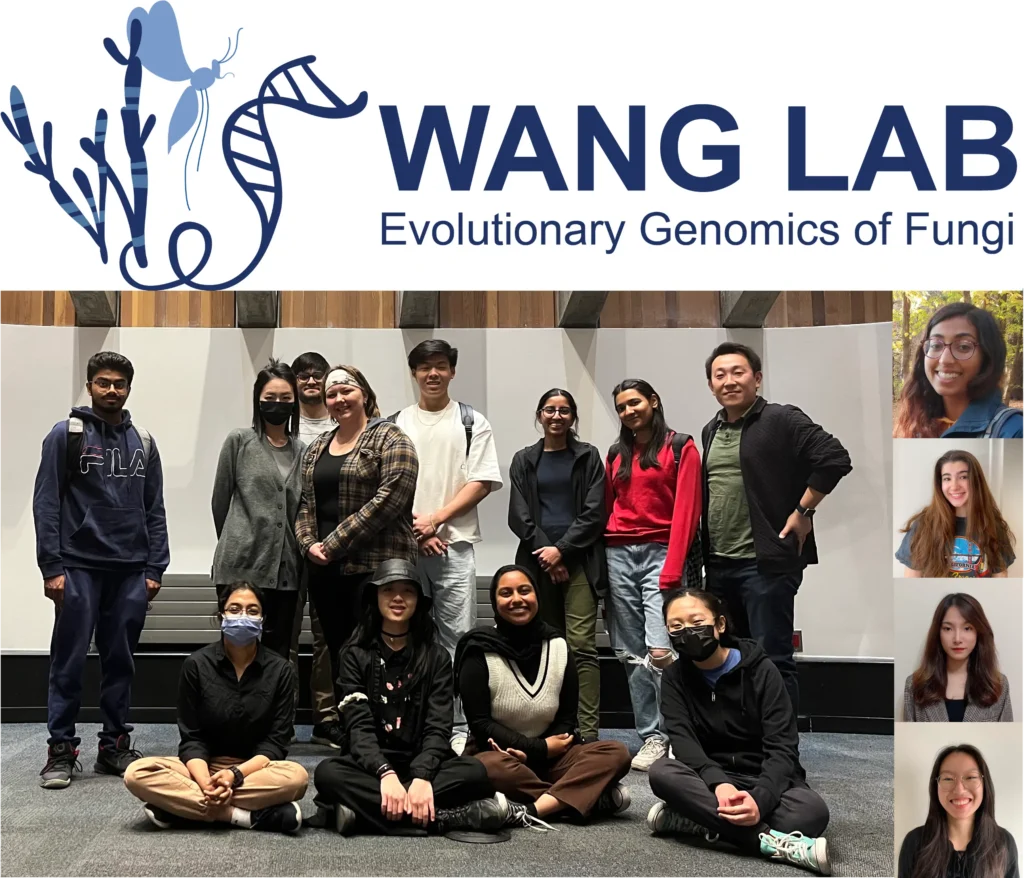The Wang Laboratory of Fungal Genomics and Evolution, established in January 2020, is based within the Department of Biological Sciences and Department of Ecology and Evolutionary Biology at the University of Toronto, Scarborough, Canada.
Led by Dr. Yan Wang, the lab specializes in exploring various aspects of fungal ecology, evolution, and genome evolution. The lab has a particular focus on fungal symbioses, including those found in the gut of aquatic insects (e.g., Harpellales in Zoopagomycota) and the rumen of herbivorous animals (e.g., Neocallimastigomycota). Research at the Wang laboratory has three key components: field collection, wet lab experiments, and computational -omics analyses.

The group’s efforts in studying the ecological distributions of insect gut-dwelling fungi involves a newly established database, which highlights the collective efforts of researchers spanning the last century and introduces several new features enabled by the global data. Fieldwork is conducted at multiple sites in Ontario, Canada in order to investigate invasive species, insect-fungus interactions, and seasonal network shifts, leading to the discovery of numerous fungal species and axenic cultures.
Utilizing a diverse array of wet lab techniques, the group aims to elucidate the biological role of fungal symbionts. Using mosquitoes and microbial fungi as their model, the lab investigates host-microbe interactions and the mechanisms of horizontal gene transfer. This research yields a wealth of knowledge in terms of the biological functions of fungal symbionts. Their work on horizontal gene transfer extends to various fungal symbiotic systems, including Neocallimastigomycota, revealing the potential transfer of genes from plants, animals, and co-existing bacteria to anaerobic fungi.
The Wang lab also employs computational -omics to investigate questions related to natural history and ancestral character state evolution. Techniques such as phylogenomics, molecular dating analyses, and comparative -omics are frequently utilized to deepen understanding of host-microbe interactions, and how fungi respond to diverse environments. Recent advancements in long-read sequencing technologies have significantly enhanced the resolving power of genomics research, enabling the lab to produce several reference-quality or even chromosome-level genome assemblies for representatives of early diverging fungi.
The group highly values collaborative efforts. With a team consisting of multiple graduate, undergraduate, and visiting students, they welcome collaboration opportunities at various levels that align with their expertise and interests in fungal genomics and evolution, as well as host-microbe interactions.
